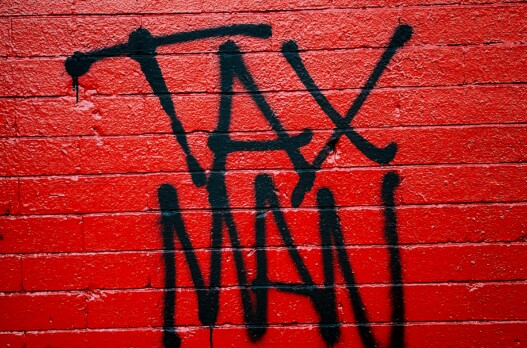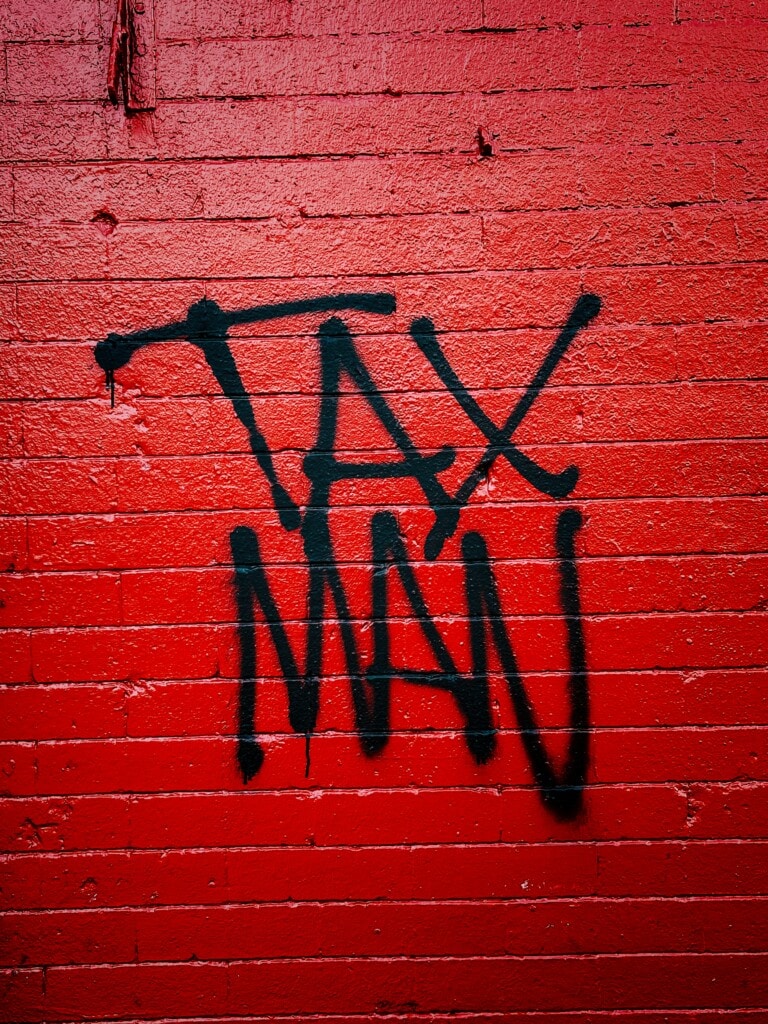This is not a change in tax law; it’s a reporting requirement change. Starting in 2022, apps like Cash App, Venmo, and PayPal will be required to issue 1099-Ks for each year that you earn more than $600 in income for goods and services paid through the app.
This distinction is very important because 1099-Ks represent Payment Card and Third-Party Network Transactions. If you use a service to process credit or debit card transactions, that service is a payment settlement entity, and the amount of those types of transactions for the year is reported on a 1099-K. But they’re not the same as a 1099-NEC that you send to vendors for non-employee compensation.
Again, this is not a tax law change. Payments between family members still aren’t taxable. Business income is still taxable in the United States.
Remember, even back in 2019, when you sold $10,000 worth of T-shirts and received all the money in Cash App, you still should have claimed that $10,000 of income. Just because it was paid to you via Cash App or PayPal doesn’t make it non-taxable. Otherwise, think about it, why wouldn’t EVERYONE be using Cash App or PayPal as their banks if they’re not subject to income tax?
To avoid any confusion down the road, I highly suggest creating separate Cash App, PayPal, and Venmo accounts for your business and personal spending. If everything is through one, and you don’t keep good records, you might end up with a 1099-K that’s way more than your business collected as income, and it will be a nightmare to go back and separate those personal and business transactions.
Even better, to avoid having to deal with any of this. Sign up for an account on Gusto or ADP; they allow you to onboard your subcontractors so that you can pay them directly through the platform, the subcontractors get a direct deposit right into their account, and the payroll company will handle the 1099s at year-end. You won’t have to worry about collecting W9s again; you can send them the link to input the information themselves on ADP’s platform.
An interesting fact. Zelle is not subject to this new reporting requirement because they are not classified as a Payment Settlement Entity. Instead, they merely act as an intermediary between bank accounts and effectively act as a bank transfer system.
Again, that changes nothing; business income paid from Zelle, PayPal, Stripe, or Shopify should still be reported as taxable income. But I find it amusing to see how many vendors are moving over to Zelle, hoping that they’ll avoid paying income tax on the money they receive.
If you pay your friend to cover your restaurant bill, pay your roommate for rent, or send your little brother $50 for Christmas. Those items are not and never will be taxable.
While we’re talking about 1099s, let’s revisit what they are and why they’re around.
What is a 1099?
A 1099 is a document that a business owner issues to a vendor, contractor, or subcontractor that provides a service for their business but NOT for merchandise or goods. The 1099 you issue to a vendor is your receipt for the transaction. It is an annual filing done in January for the previous year.
More specifically, a 1099-NEC (Non-Employee Compensation) is issued to vendors for whom you paid more than $600 total in a calendar year.
A 1099-MISC is issued to anyone you paid rent to in a calendar year.
And a 1099-INT is issued to anyone you paid interest to in a calendar year, except banks and credit card companies because they’re Corporations. More on that caveat later.
What is a W9?
A W9 is the document that you will collect from the vendor, person, or business you’re paying. It will include their name and SS# or their business name and EIN. It will also have their address and the type of entity that they are. The W9 is an important document to collect BEFORE payment is made to the vendor. It will serve as a guide as to whom you are doing business with, who you should be paying, and whether or not they’re required to be 1099’d.
When should I collect a W9 from a vendor?
A W9 should be collected BEFORE you make a payment to the vendor. You won’t even know who to pay unless you see the W9 and know where you’re sending the money or who you’re making the check out to.
Why am I required to 1099 vendors?
A business is required to issue 1099s to be able to deduct the expense against your business profit. It’s another way for the IRS to double-check that the expense you’re using to reduce your business profit is picked up as income on the tax return for someone else’s business.
Which vendors do not need 1099s?
If you find out, based on the W9 that your vendor submits to you, that the business is set up as an S-Corporation or C-Corporation, congrats!! Those types of entities are NOT required to be 1099’d.
The IRS exempts corporations from receiving 1099s because these entities are already subject to strict state and federal reporting and administrative requirements.
Do the 1099s show up on my tax return?
Yes, well, kind of.
Did you make any payments during the tax year that would require you to file Form 1099? Every business has to answer this question on the form they report their business income and expenses on. And if you answer yes to that question, you have to answer whether or not you filed those 1099s that you were required to. So by answering this question, the IRS can quickly tell if you actually submitted 1099s for that tax year.
The 1099s also “show up” on your tax return in the form of business expenses that are used to reduce your taxable income. So in order to take the expense and use it to reduce your income, you should issue a 1099 to that vendor. If you want to pay cash or check and you don’t want to issue a 1099, you shouldn’t take the expense on your books.
What happens if I’m audited and I didn’t 1099 anyone or everyone I should have?
If you’re ever audited, you will be penalized for any expenses taken on your tax return that shouldn’t have been because 1099s were not issued. You might also be subject to any self-employment taxes that the vendor should have paid on income that wasn’t claimed because the 1099 wasn’t produced.
The IRS can also charge your company a penalty of $30 to $100 per form that should have been filed. The amount depends on how long past the deadline the company issues the form. If a company intentionally disregards the requirement to provide a 1099, it is subject to a minimum penalty of $250 per form.
DEADLINE
When are 1099s due?
1099s are due to be filed by January 31 of every year for the previous calendar year.
Should I file a 1099 after the deadline?
If you’re late, that’s okay; it’s better to get them filed late than never. Even if it’s May, file them if you haven’t. But remember, filing the 1099 puts it on file with the IRS. So if your subcontractor filed their tax return already, make sure they included business income of at least the amount they’re getting a 1099 for, because if they didn’t, the IRS is going to catch that mismatch, and it’s going to send them a letter asking why there’s a discrepancy.
OTHER QUESTIONS
What happens if I already paid the vendor, but I don’t have a W9 for them?
Try to track them down. DM them, call them, get their W9. Honestly, you might be able to piece together their name, address, phone number, and email address, but the SS# or EIN will be hard to get without them. That’s why it’s usually easiest to get it from them directly before paying them. Most business owners understand that they’re supposed to claim income regardless of whether or not there’s a paper trail, but some vendors will ghost you after payment, thinking they won’t have to pay tax on income if they don’t receive a 1099.
What happens if I already paid the vendor, but I don’t have a W9 and they aren’t answering me?
Shucks. For the future, ALWAYS get a W9 before you pay them. But now, you need to prove that you attempted to collect their information and issue them the 1099. Keep records of any emails, phone calls, text messages, DMs that go unanswered. That’s going to be your best bet to substantiate the expense should you ever be audited. You can still take the expense against your income and hope that you’re never audited, depending on your risk tolerance. But you also might want to consider not using the expense as a tax deduction to play it safe.
Why is everyone ignoring me when I ask them for a completed W9?
There is a misconception that if a 1099 is not produced, then you don’t have to pay tax on that income. That is, in fact, absolutely false. You are required to pay income tax on income earned in a given calendar year, regardless of how you were paid or if it was reported to the IRS or not. A person’s income for the year is what they collected, and if they’re ever audited, they will find out the hard way that the IRS doesn’t solely rely on 1099s to assess income tax. They’ll want to follow every dollar in and out of your bank accounts, virtual wallets, etc., to ensure that you’re paying tax on every last dollar of income.
What time period of payments should be included on the 1099?
The 1099 that you issue to vendors in January is always for the entire previous calendar year. So in 2022, as an example, we’re 1099ing people that you paid from January 1, 2021 – December 31, 2021.
Do I need to pay someone more than $600 in a year to 1099 them?
Yes. It doesn’t matter if you paid them $6 100 different times during the year or $600 one time during the year; they still need a 1099. Unless they’re a corporation, then you don’t need to 1099 them.
Can I pay someone $599, 10 times a year instead of $5,990 all at once to avoid the 1099 requirement?
No, the IRS doesn’t care when or how frequently payments were made; they’re only looking at the total sum of all payments in a calendar year.
Do I need to 1099 someone that I paid via check, bank transfer, bill pay, or cash?
Yes, you do.
Do I need to 1099 anyone that I paid as a W2 employee?
No, you do not. A W2 will show all wages paid to an employee during the calendar year, but it should not include any 1099 payments. And a 1099 shouldn’t include any wage or payroll payments. Otherwise, the IRS will be looking to tax that income twice.
Do I need to issue 1099s for interest that I paid?
Yes, you should issue a 1099-INT to the person or business that you paid interest to during the year. Indicating in box 1 how much interest you paid them during the year. However, Corporations are exempt from needing 1099s so don’t worry about 1099ing American Express, Chase, or Wells Fargo.
Do I need to issue 1099s for rent that I paid?
Yes, you should issue a 1099-MISC to your landlord, indicating in box 1 how much rent you paid your landlord. The only instance where you won’t need to 1099 your landlord is if they’re a Corporation.
Do I need to 1099 to a foreign vendor?
As long as the vendor isn’t a U.S. taxpayer and the services were performed outside of the United States, then no 1099 is required to be issued.
Do I need to 1099 to a vendor for expense reimbursements?
You do NOT need to 1099 a vendor for expense reimbursements if they’re paid via a separate payment or check. For example, if you paid them $500 for services in one check and $125 for parking reimbursement in another, you don’t need to 1099 them because the services you paid for were $500. But if you paid them $625 in one check, that’s okay. But what you should do is 1099 them for the full amount, and then they’ll claim the $125 expense that they paid out of pocket on their income tax return so that the net amount they’re taxed on is only $500.
EXAMPLE OF VENDORS THAT NEED A 1099
- Web Design vendor that was paid $5,000 in the calendar year. Paid via checks. The entity is a Partnership.
- This vendor would receive a 1099-NEC.
- Graphic Design vendor that was paid $625 in the calendar year. Paid via Bill Pay. The entity is a Single-Member LLC.
- This vendor would receive a 1099-NEC.
- Photography vendor that was paid $1,500 in the calendar year. Paid in personal Venmo. The entity is a sole proprietorship.
- This vendor would receive a 1099-NEC.
- Your landlord was paid $12,000 in the calendar year. Paid via checks. The entity is a Single-Member LLC.
- This vendor would receive a 1099-MISC showing the rent paid.
- Your aunt loaned your business money and you paid her back in the principal plus $750 in interest in the calendar year. Paid via Bill Pay. The entity is a sole proprietorship.
- This vendor would receive a 1099-INT showing the interest paid.
EXAMPLE OF VENDORS THAT DO NOT NEED A 1099
- The landscaper that worked on your home’s exterior.
- Since this service has no business purpose, this person does not need to be 1099’d. And this should also not be a business expense.
- Virtual Assistant vendor that was paid $10,000 in the calendar year. Paid via Bill Pay. The entity is an S-Corporation.
- The only reason they don’t need a 1099 is because they’re an S-Corp. If they were a sole proprietor or partnership, they should be 1099’d.
- Handyman vendor that was paid $500 in the calendar year. Paid via check. The entity is a Single-Member LLC.
- Because you didn’t pay them more than $600, there is no need to issue a 1099.
- Lawyer vendor that was paid $5,200 in the calendar year. Paid via Business Venmo. The entity is a Corporation.
- There is no 1099 requirement because the entity is a Corporation. Plus, since you paid them via Business Venmo, they’ll get a 1099-K from Venmo.




